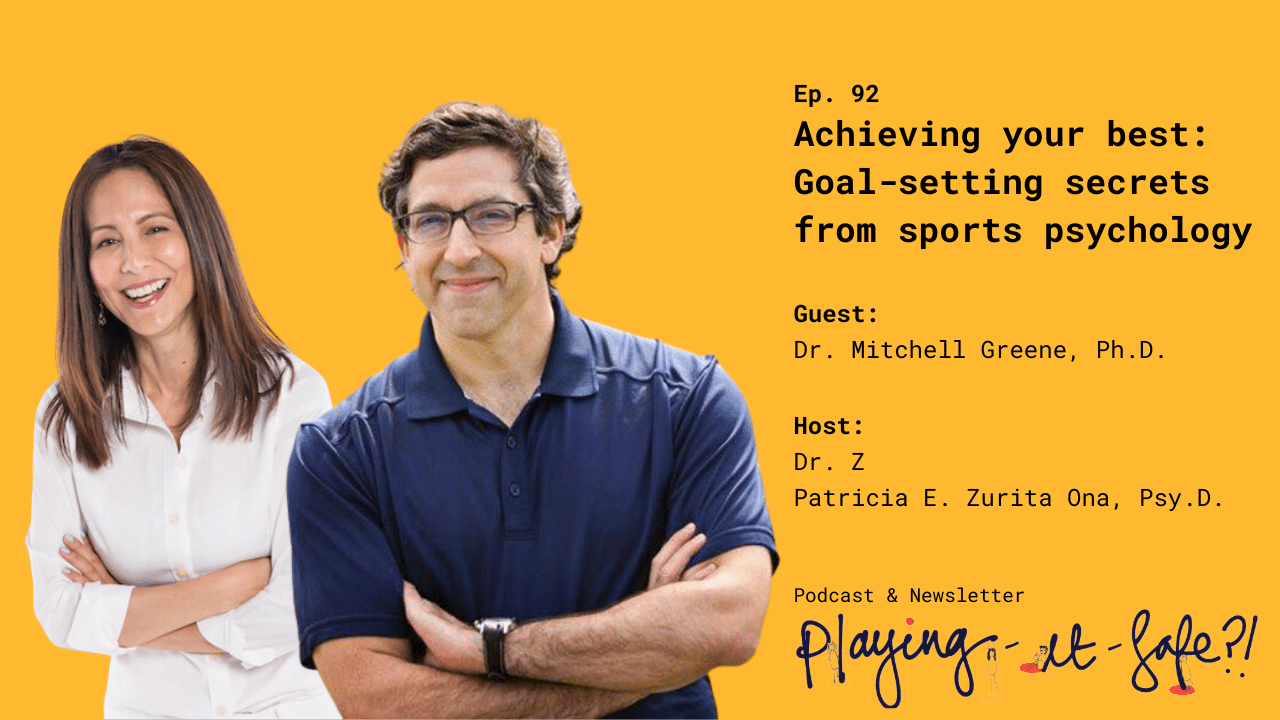D espite what most people think, behavioral science is not an abstract concept or a theoretical model reserved for academicians or the bookshelves of a library.
Behavioral science, to me, is a world’s philosophy for understanding our day-to-day interactions.
Every conversation, every thought, every struggle, every moment of joy, and, basically, every experience we have, can be appreciated, seen, and understood through the lens of behavioral science. The reality is that behavioral science – and Acceptance and Commitment skills as a direct application of behavioral science – are part of our lives, from the moment we wake up to the moment we fall asleep.
Inspired by the series Modern Love, I’m sharing with you a contemporary love story and with it, I’m also sharing how skills derived from behavioral science can help you to navigate romantic encounters.
Think about it, as our lives unfold, our quest for purpose and meaning also unfold—and also our quest for love. Who doesn’t want to love and be loved?
We do experience love in so many ways in our lives, and if we’re fortunate, we experience a special type of love: romantic.
Part I: The Dating Story
He and she met after the click of a mouse and the swipe of a screen on their cell phones and in the midst of online dating companies creating a paradox of choice that keeps us chasing the illusion of what love is and perpetuates questions like, Why should I settle for someone who falls short of my expectations when there are other options [just a click away]? Why should I settle for less when there are many more people to meet [just a click away]?
They liked each other’s profiles, and for ten days exchanged texts daily. They agreed to meet on a Sunday morning.
On their first date, they wandered around by the bay; they shared parts of their lives, their backgrounds, and family jokes. They laughed, enjoyed the nice weather, and, after six hours, ended their date by sharing an octopus dish, a salad, and a glass of wine.
On their second date, they went for a hike: They walked through the trees and felt the contrast of the temperature in the shadows and under the sun. They laughed about their weeks, shared their relationship pasts with one another, laughed about being lost, and finished their hike eating octopus and a small salad. They started their date at 10:00 a.m., and by the time they said goodbye, it was 6:00 p.m.
On their third date, a week later, he was sick and had been coughing the whole week, but didn’t want to cancel their date. Their date was in the middle of the week, so he made sure to take a nap before seeing her. They went to dinner, and while sharing a soup, ceviche, a glass of white wine, and a cup of chamomile tea, he discovered her passion for research and she discovered his curious mind. They were the last people to leave the restaurant and finished the night by sharing a good laugh.
After their third date, she didn’t contact him.
He didn’t know what happened.
He felt sad and confused and didn’t know what to do. All he remembered was having fun conversations, sharing laughs, enjoying one another’s company, wandering the streets together, and always looking forward to the next gathering. He didn’t want to bother her or come across as “needy.” After ten days, he decided to call her:
- Him: Hi, is this a good time? Can we chat?
- Her: Yes, of course. So great to hear from you.
- Him: How have you been?
- Her: I’ve been doing well, thank you. Busy with work.
- Him: I know you were dealing with a stressful situation. Did you guys solve it?
- Her: Yes, that got solved, and it’s all good now.
- Him: Glad to hear that. Can I ask a question?
- Her: Yes, of course.
- Him: I was surprised I didn’t hear from you; I was surprised you didn’t reach out these last ten days. I thought we were having fun.
- Her: I thought you didn’t like me.
- Him: . . . I’m confused. . . . Of course I like you. Every date has been fun, and I didn’t notice the time flying by. I was surprised not to hear from you.
- Her: I really thought you didn’t like me. I don’t know how I arrived at that conclusion. At our last dinner, I thought that maybe you were just being nice to me.
- Him: No, I was excited to see you. I made sure to take a nap so I could hang out with you.
- Her: I’m so glad you reached out and that we’re talking because I do want to see you again. I enjoyed your company a lot.
On their fourth date, they went for a bike ride, took a break in a park, laid down on the grass, held hands, and then spent the rest of the afternoon wandering the streets of a metropolitan city, grabbing a cocktail at a marroqui bar close to 10:00 p.m. When they said goodbye to each other, they kissed for the first time.
On their fifth date, he said, “I like you and would like to date you exclusively.”
She replied, “I like you a lot too, and it has been so exciting and refreshing to meet you. But I don’t know how things will go between us. I need to know more. I need to know that things will be fine.”
Part II: The Overthinking Problem
We all have been taught to understand things with our minds, to make sense of everything and everyone around us with our thoughts, and to think through things and situations carefully. We have also learned to think of our minds as these omnipotent organs that know what is true at all times.
She responded in a way that felt natural to her brain.
It’s so tricky.
She deeply wanted to develop romantic intimacy in her life. She deeply wanted to be seen and to see another person through caring and passionate eyes. She deeply wanted to develop a romantic relationship and grow together with another person.
Yet, despite being clear on how romantic relationships are important to her and making the commitment to go on dates, her mind was overthinking.
Overthinking patterns have many variations, colors, and shapes, and everyone overthinks. But interestingly, we don’t tend to overthink good outcomes, compliments, or positive scenarios. We overthinking about negative outcomes, things we don’t have control of, what-if scenarios, embarrassing moments and much more.
You may go on a date and, for a long time after, replay in your mind what the other person said, how you responded, how the other person responded. If you’re running late to a gathering, you may have thoughts like, I’m the worst friend ever; they’re going to be disappointed in me. I cannot do anything right.
Does that sound familiar?
Going back to one of the main characters in this dating story, her mind was overthinking in two particular ways:
- Searching for certainty about the future of the relationship.
- Wanting to “know more” – meaning she wanted to learn more about the possibilities of that relationship by thinking about it.
Let’s take a look at each one of these thinking patterns:
(a) Searching for certainty
We all have a need to make sense of the unknowns that show up in our lives for instance, when you go to a new restaurant and don’t know how the food is going to taste, or when you go on a date and don’t know if your date is going to like you or if you’re going to enjoy their company.
Our experience dealing with confusing situations is unique to each one of us; there are no two people that feel ambiguity the same way and with the same intensity. Intolerance of uncertainty feels different from situation to situation, and we can react differently to it from one moment to the next.
Some of us are more sensitive to uncertainty than others, and our reactions can go from extreme aversion to even extreme attraction. When we feel an extreme aversion to confusing situations, we may experience high levels of fear, rejection, and emotional negativity; on the other hand, when we feel extreme attraction toward an ambiguous situation, we may be curious, we might welcome the challenge, and we may even enjoy the process.
The mind of our main character has a low tolerance for uncertainty and organized a thinking pattern of committing to the possibility of exploring how the relationship will go only if she knew it would go well – a tricky business.
(b) Wanting to know more
The human mind also tends to try to understand, analyze, and collect endless data, as if it is a 100 percent reliable organ and everything needs to be filtered through it.
Let’s unpack this a bit: Our brains have been protecting us since the beginning of humanity. Our ancestors’ minds developed survival functions that kept them alive – anticipating potential enemies, remembering old threats, and considering all of the what-if possibilities of wild animals and enemies.
As time passed, and we moved from prehistory all the way to the industrial revolution and the information age, our minds – as sophisticated as they are – didn’t have a chance to catch up with all those changes. So these days, each of us is walking around with a brain designed in prehistoric times, and with protective functions that equipped us for those times, not necessarily for our current situations.
In other words, our minds never got the opportunity to be upgraded to our current living conditions, or to the environment we live in now, and, as a result, we’re more prone to thinking errors than ever before.
Daniel Kahneman (2011) has described this phenomenon in detail when describing slow thinking and fast thinking, and Eastern philosophies have recognized for years our minds’ limitations.
In our dating story, our main character’s mind had four direct experiences of fun, exciting, and rich dates, and yet, her mind wanted to “know more,” as if having more thinking data would help her make the right choice, and as if her mind somehow had the truth about how to effectively handle that situation.
Part III: The Consequences
There is experiential knowledge, and there is the hope that responding to thinking with more thinking will give us all the information and certainty we need to make a decision.
Once again, it’s a tricky business.
Both overthinking patterns – searching for certainty and wanting to know more – while helpful at times, can keep us stuck in our own heads and can feed into our rabbit hole of worry.
When applied to dating, these overthinking patterns may reinforce serial dating behaviors – moving from one person to another, searching for a long-lasting feeling of excitement, avoiding commitment, and confusing lust for love.
But what’s worse is that these patterns can keep a person from one of the most transformative experiences we can hope for – true love – and the intimacy and connection that comes from being with a partner.
Part IV: Key Questions to Undo Those Overthinking Patterns
Few people know that thoughts are letters and words together that our minds come up with and that we can choose how to respond to them. Acceptance and commitment skills invite you to learn how your mind does its own minding and how it has a life of its own.
And, when you learn to choose how to respond to your thoughts, everything changes. This is when you take charge of your actions (instead of being bossed around by your mind and letting it take you in the opposite direction from where you want to go.)
(a) If you’re dealing with a low tolerance for uncertainty:
- Stop battling against those uncertain thoughts.
- Ask yourself: Am I willing to go on from here, carrying all these uncertain thoughts wherever I go, noticing how they come and then simply having them?
- Do not assume something is wrong when you feel uncertain.
- Observe those uncertain thoughts as though they were printed letters on a page.
- Make a decision to feel the uncertainty, even if it’s uncomfortable.
- Check the consequences of your actions when you’re being driven by uncertainty or reacting quickly to it.
(b) If you’re dealing with a reliance on your mind as the arbiter of truth:
And this is pushing you to respond to doubt with yet more thinking, ask yourself:
- What am I going to trust: my experience or my mind’s desire to know more?
- What am I going to act on: my wish to know more or my knowledge gained from direct experience?
Behavioral science deals with all of our behaviors – private and public – and while there is much more to say about this dating narrative, and there are different lenses through which we can look at it, I can only speak to and reference my areas of expertise.
Final words
And if you’ve made it to the end of this article, I would like to share two more thoughts with you:
- I’m not a thinking renegade, but I’m all about a thinking revolution.
- To be loved and to love, we need the awareness and the courage that behavioral science can help us find in the busyness of our minds.
I leave you with this quote:
“I want to know if you are willing to live day by day with the consequence of love.”
– David Whyte




















